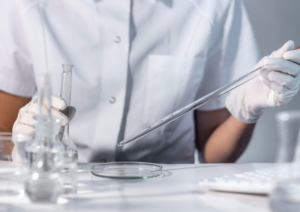Ensuring Safe Water: The Importance of Water Testing in Chennai
Water is essential for life, and ensuring its safety and quality is crucial, especially in urban areas like Chennai. With its growing population and industrial activities, Chennai faces significant challenges related to water contamination. This makes water testing an essential practice for residents and businesses alike. In this blog, we will explore the importance of water testing in Chennai, the types of tests conducted, and the benefits of regular water quality assessments.

Why is Water Testing Important in Chennai?
Chennai, a bustling metropolitan city, relies heavily on groundwater, rivers, and lakes for its water supply. However, these sources are susceptible to contamination from various pollutants. Here’s why water testing in chennai is vital:
- Health and Safety: Contaminated water can lead to severe health issues, including gastrointestinal diseases, neurological disorders, and reproductive problems. Testing helps detect harmful bacteria, viruses, and chemicals that can cause such diseases.
- Industrial Pollution: Chennai has a significant industrial presence, and effluents from factories can seep into water sources, contaminating them with heavy metals, chemicals, and other toxins. Regular testing helps monitor and control industrial pollution.
- Agricultural Runoff: Pesticides and fertilizers used in agriculture can leach into water bodies, posing risks to human health and aquatic life. Testing ensures that water used for drinking and irrigation is free from harmful agricultural chemicals.
- Regulatory Compliance: The Tamil Nadu Pollution Control Board (TNPCB) and other regulatory bodies set strict water quality standards. Regular testing ensures compliance with these standards, helping avoid legal issues and ensuring public safety.
Types of Water Testing
Water testing involves various tests to assess different aspects of water quality. Here are the main types of tests conducted in Chennai:
- Bacteriological Tests: These tests check for the presence of harmful bacteria such as E. coli and coliforms, which indicate fecal contamination. Regular bacteriological testing is crucial to prevent waterborne diseases.
- Chemical Tests: Chemical tests detect contaminants like heavy metals (lead, mercury, arsenic), nitrates, and pesticides. These tests are essential for identifying toxic substances that can harm health.
- Physical Tests: Physical parameters such as color, odor, and taste are assessed to determine the overall quality of water. These tests help identify any noticeable contaminants that may affect water quality.
- Radiological Tests: These tests check for radioactive substances, which can pose serious health risks. Although less common, radiological testing is crucial in areas near industrial or mining activities.
- pH and Hardness Tests: These tests measure the acidity and hardness of water. Maintaining appropriate pH and hardness levels is important to prevent corrosion of pipes and appliances and to ensure water is safe for consumption.
Benefits of Regular Water Testing
Conducting regular water testing in Chennai offers numerous benefits:
- Early Detection of Contaminants: Regular testing helps identify contaminants early, allowing for timely corrective actions to be taken before they pose significant risks.
- Improved Public Health: By ensuring water quality, regular testing helps reduce the incidence of waterborne diseases, improving overall public health.
- Cost Savings: Preventing contamination and damage to infrastructure through regular testing can save money on healthcare, repairs, and replacements.
- Environmental Protection: Regular testing helps monitor and control pollution, protecting Chennai’s water bodies and aquatic ecosystems.
- Informed Decision-Making: Testing provides valuable data that can guide decisions regarding water treatment and purification, ensuring safe and clean water for all uses.
Water testing in chennai is a critical practice for ensuring the safety and quality of water in Chennai. With the city’s growing population and industrial activities, regular water quality assessments are more important than ever. By conducting bacteriological, chemical, physical, radiological, pH, and hardness tests, we can detect contaminants early, protect public health, comply with regulations, and safeguard the environment. Prioritizing water testing ensures that the water we use for drinking, cooking, and other purposes remains safe and clean.


